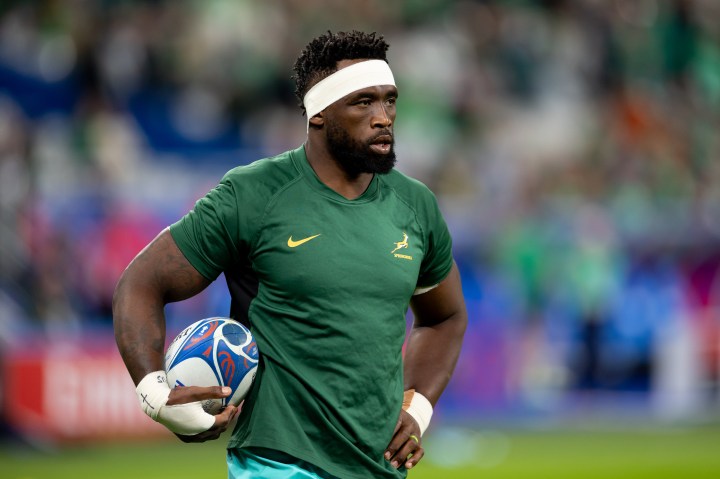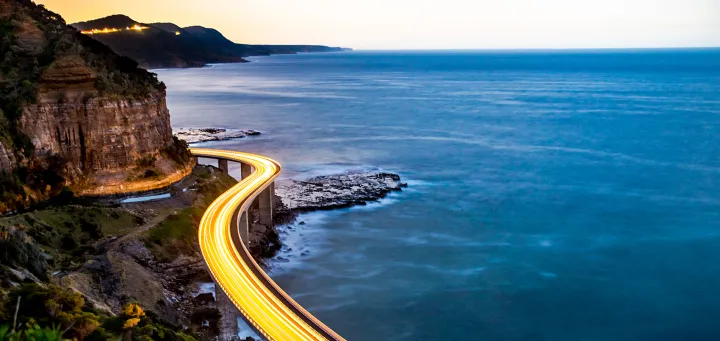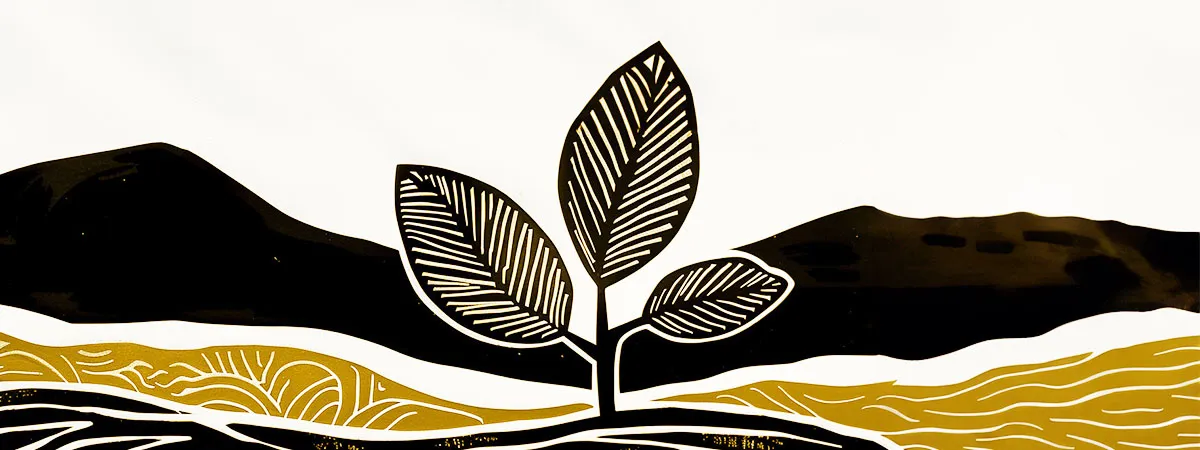RWC 2023
Kolisi brings up half century as Bok skipper in Marseille and the journey still has some twists left

Siya Kolisi will lead the Springboks for the 50th time when they face Tonga in Marseille in their final Pool B match of Rugby World Cup 2023.
Siya Kolisi’s Springbok captaincy debut against England in June 2018 was in many ways an apt metaphor for his life at that stage.
It started with massive adversity as England ran into a 24-3 lead after 20 minutes. The Boks then had to struggle and claw their way back, and it ended in triumph as they won 42-39.
Kolisi was still unsure of himself as captain back then. His exchanges with referee Ben O’Keefe were tentative to begin with, but eventually he found his voice and had more forceful dialogue with the official and with the opposition.
As the Boks roared back into that match, England were cracking. The thin Highveld air burnt their lungs and the pace the Boks played at in their desperation to fight their way back into the match, took its toll.
At one stage England prop Mako Vunipola feigned injury just to get a breather. Kolisi wasn’t having it, and gave him a mouthful, telling to get off his butt and play. Kolisi the captain had arrived.
Half century
This weekend marks the 50th time that Kolisi will lead the Springboks, in his 80th Test, when they meet Tonga at Rugby World Cup 2023. The stakes are as usual for the Springboks and for the captain, huge.
The Boks must win and secure a bonus point to all but guarantee their passage to the quarterfinals. On paper, it should be a comfortable assignment, but rugby matches are not won on paper.
Despite the raised stakes for this match, Kolisi and the rest of the leadership group won’t change their approach. They are experienced enough to know what works and to stay calm under pressure, something that their skipper embodies.
Kolisi is an inclusive leader. He speaks rather than shouts. He asks for assistance and lets other leaders guide the team at certain stages.
The Kolisi you meet today is the Kolisi you met a decade or more ago. He’s more self-assured, but the humbleness, the drive and the desire are still there.
In that first England match, he spoke quietly in a huddle under the crossbar after yet another England try, reminding his team that there was plenty of time left and that they had to chip away at the lead.
He invited Duane Vermeulen to speak, which was a slightly less civil exchange with the players. Teammates such as Vermeulen have been indispensable sergeant-majors to Kolisi’s captain.
Off the field, of course, Kolisi has grown into one of the most iconic people in the world of sport. He is known just about everywhere and is arguably the most famous rugby player on the planet.
Lifting the Webb Ellis Cup in Japan four years ago was hugely symbolic. A black Springbok captain, raising rugby’s greatest prize aloft, was as important as Nelson Mandela passing the same trophy to Bok skipper Francois Pienaar in 1995.
It shot Kolisi into the stratosphere in terms of marketability, but fortunately he’s remained grounded as a person.
Read more in Daily Maverick: Rugby World Cup 2023
The Kolisi you meet today is the Kolisi you met a decade or more ago. He’s more self-assured, but the humbleness, the drive and the desire are still there.
Simple gestures, that are not public relations exercises but genuine reflections of his warm and inclusive personality, are on display constantly.
He often spends too much time with fans after matches, taking selfies and speaking to them, much to the anguish of the Springbok media managers who are tasked with sticking to schedules.
And speaking of the media, he almost always walks into the media room and shakes everyone’s hand in greeting.
“It’s honestly something I never dreamed of, that I never thought would happen. Where I come from, I didn’t have dreams like that,” Kolisi said from Stade de Marseille on Friday.
“I played rugby because I enjoyed it, I played it because it kept me out of trouble and I played it because most of my friends played it. I definitely didn’t think I would be sitting here now.
“I am always Siya the human being before anything else. When I’m a captain I have to talk to the ref, but other than that I try to be myself at all times. It is hard. You can’t tell people what to think of you but I see myself as Siya at all times.
“You can’t see yourself because of your position. That is going to go away but you must be constantly the same person, and if you’re not you need to have good people around you who’ll tell you you’re acting like what people are saying about you.
“I try and be Siya at all times.”
Born leader
It wasn’t always smooth and, in fact, formal leadership of a team was something he never actively sought. It was in some ways thrust on him by former Stormers coach Robbie Fleck. But Fleck saw something in him that a few months later Erasmus also recognised. Kolisi is a born leader, even if he didn’t think so.
“I’ve become a leader, which is something I have had to learn and grow into,” Kolisi said in an interview with this writer soon after he was made Stormers skipper.
“I suffered an ankle injury when we lost to the Chiefs in the 2016 quarterfinal. After that game, Fleckie (Robbie Fleck) called me in and had some hard words for me.
“He told me I should look around and realise that I was now a senior player in the side. He was blunt. I needed to get my act together. He told me I should be a captain.
“It made me switch my mentality. I realised that I had to stop hiding and acting like a child in the team. I had to man up and show leadership because even though I was 24, I was already quite experienced.”
And that’s exactly what he did. He became a leader.
“Here at the Springboks, that was tough. It was really difficult at the beginning because I don’t think there’s any greater honour, other than playing for the Springboks, to captain a team like this with its history and everything. Being the first black captain, it was difficult.
“In my mind I was being captain of the Springboks, it’s a big thing already, but for so many people it meant so much more and I didn’t understand the weight of it.
“I was fortunate to have the players we have in the group; Duane [Vermeulen], Eben [Etzebeth] who has captained the team, Pieter-Steph [du Toit] who has captained the team, Handre Pollard – I honestly wouldn’t have done it if I didn’t have the guys that we have and also the coaching staff.
“Coach Rassie (Erasmus) understood. He knows me. He’s known me since I was 17 years old, Jacques since I was 18. They know what kind of person I am and they built things around me.
“My role hasn’t changed since that first game that I played. It’s simple; I just have to play well and talk to the ref. Honestly, without the team that we have, the players and the management, I don’t think I would have lasted.”
After that 2018 series against England, which the Boks won 2-1, Kolisi was named full-time captain. Initially Erasmus had only appointed Kolisi as skipper for the England series.
What the coach saw in that series convinced him it was the path forward.
“It was a no-brainer decision for me and there was no doubt in my mind that Siya would continue as captain‚” Erasmus said at the conclusion of that first series.
“After the relative success we had against England‚ and I have to say we weren’t world beaters‚ Siya did a good job.
“The way he carried himself through a lot of emotional moments was impressive. It wasn’t negative emotion‚ but he had a lot of emotional things on his shoulders and he dealt with it well.
“He also played relatively well but I believe you’ll see a different‚ better Siya in the future. He will start playing really well‚ if I could put it like that‚ if his performances at our training camps over the past few weeks are anything to go by.
“The fanfare around the captaincy has died down now and he can focus on his game.”
What prophetic words those were.
Kolisi’s story from abject poverty to the pinnacle of perhaps the most important sport in the country, is both miraculous and inspiring.
Kolisi has never left those humble beginnings, as a hungry child in Zwide, outside Gqeberha, behind. He’s never tried to escape them and instead proudly carries them with him and channels those memories and experiences positively.
“I don’t shy away from where I have come from and I’m aware that my story is a typical South African story in some ways. It’s my motivation,” Kolisi said in one of our many interviews.
“I just think about where I’ve come from and about the people that look up to me. For me to be able to help people inspired by me, I have to play every week. That is my duty.”
And this weekend, and hopefully for a few more weeks in France yet, duty will continue to call. DM


















It is great having a good captain that also deserves his spot as best player. This has not always been the case with Springbok captains.